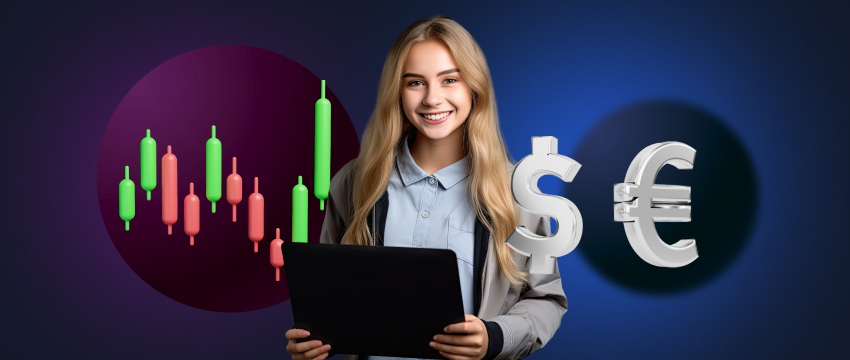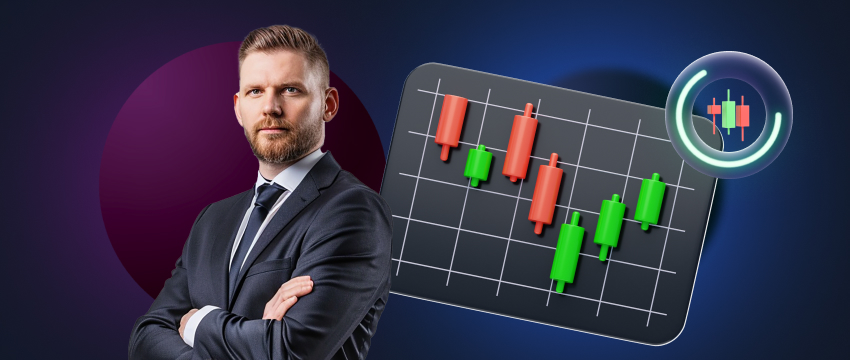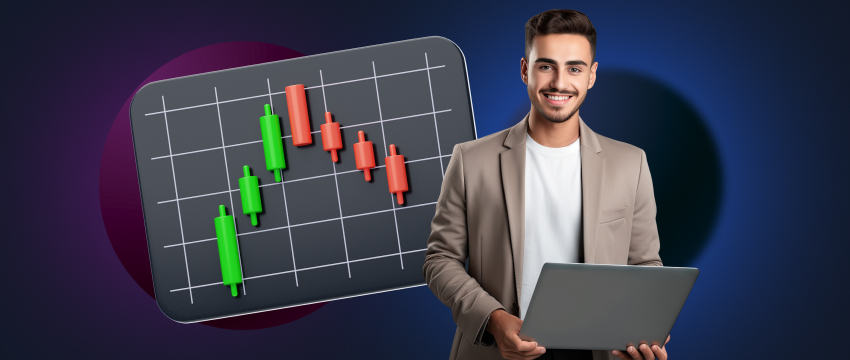A forex trader is an individual or entity that trades currency pairs on the forex market. In other words, a forex trader buys one currency and sells another. Exchange rates fluctuate for several reasons, be it supply and demand, economic events or announcements, geopolitical instabilities, and others.
The foreign exchange market, a decentralized (over-the-counter or OTC) global market, trades currencies 24/5 from Sunday 5 pm EST to Friday 4 pm EST. This market determines exchange rates for all currencies.
The forex market is by far the largest market worldwide in terms of trading volume. With daily averages sometimes reaching in excess of US$6 trillion. It is also highly liquid due to the volume and frequency of daily trades.
Transactions take place through electronic networks between traders all over the world, internet connectivity permitting. Due to the global nature of currency trading, forex traders are usually able to react to news or events in real time.
Who can be a forex trader?
A forex trader can be just about anyone, provided they have access to the internet and the skills required to trade currencies. Saying that, the forex market does see most of its trading activity carried out by institutional traders. Including bank employees, fund managers, multinational corporation representatives, etc.
In fact, according to various online stats, retail traders account for approximately 5% of the forex market. So, what is a retail trader? Well, they are an individual who trades forex in their own capacity, utilising their own money, as opposed to someone who acts on behalf of a larger institution or organisation.

How does a forex trader trade?
Rather than taking physical possession of currencies. A forex trader will usually engage in speculation of exchange rates in an attempt to profit from potential price movements in the market.
What types of forex traders exist?
Forex traders typically group themselves according to their trading style. Position traders for instance usually follow a longer term trading strategy, holding onto positions for weeks, months, or years. They also use fundamental analysis to make better informed trading decisions.
In contrast, a scalper will execute a larger volume of trades within a trading day. Aiming to profit from smaller price movements. They tend to hold positions for a few seconds to minutes. Similarly, day traders will also enter and exit trades before the trading day ends. They avoid holding trades open overnight to mitigate risk.
Finally, swing traders will likely hold positions open for a number of days to weeks. They may combine technical and fundamental analysis to improve trading outcomes.
Majors, minors, and exotics
The currency pairs traded by traders are categorised into the majors, the minors, and the exotics.
The most liquid pairs are the majors. They are also the most popular traded pairs.
They are:
- EUR/USD
- GBP/USD
- USD/CHF
- USD/JPY
- USD/CAD
- NZD/USD
- AUD/USD
Minor currency pairs are also referred to as crosses, and they don’t include the USD. They may have less liquidity and wider spreads than the majors but do offer trading opportunities.
Examples include:
- EUR/GBP
- EUR/AUD
- GBP/JPY
- AUD/JPY
- EUR/CAD
- NZD/JPY
- GBP/AUD
Exotic currency pairs are comprised of one major currency and a currency from a smaller and merging economy. Unlike the majors and the minors, these pairs are not as liquid, and their spreads are significantly wider.
Examples are USD/SGD, EUR/MXN, USD/TRY, USD/ZAR, GBP/PLN, etc.
Risks associated with forex trading
There are several risks that forex traders must be cognisant of to avoid losing their money. Firstly, they must be aware of market risk, in particular currency price fluctuations that may potentially result in losses. Forex traders must also be vigilant about using leverage, particularly in forex trading which oftentimes involves high use of leverage, which can magnify both losses and gains.
Another risk a trader must be mindful of is the risk of liquidity, more specifically those currency pairs that may have limited liquidity, resulting in slippage or unfavorable trade execution. Trading psychology is a form of emotional risk that may lead to impulsive decisions and significant losses.
Finally, a trader must also mitigate brokerage risk, i.e., ensuring that they select a trustworthy broker, one that is held in high repute and that implements proper safeguards to protect a trader’s funds.

Key activities that forex traders engage in
Traders and analysis
To be able to effectively trade currency pairs, a forex trader engages in a variety of activities. Central to these activities is technical (and where required for fundamental) analysis. Technical analysis usually involves studying price charts and using technical indicators to speculate on future price movements. In the event the forex trader opts to apply fundamental analysis, they will consider financial statements, geopolitical events, industry reports, earnings reports, economic indicators, etc.
Forex traders may also be inclined to build and follow a trading plan which will incorporate technical/fundamental analysis techniques and risk management measures. The trading plan will generally definitively state the trader’s objectives, and the rules by which they will trade.
Risk of forex traders
As far as risk management is concerned, a forex trader will attempt to align their risk tolerance with their budget to safeguard their capital. Their trading plan will incorporate risk management rules like stop loss or take profit orders to mitigate the potential loss of funds. They will likely exercise caution as far as leverage is concerned as well as to avoid amplifying losses.
Forex traders will also attempt to keep up with the news in order to stay informed on current affairs, particularly those that are likely to impact exchange rates. This includes central bank announcements, economic releases, political uncertainties, and many more.
Forex trader learning and practice
A forex trader will also commit time to ongoing learning to hone their trading skills, and educate themselves about market conditions, new technologies, trading analytics tools, trading strategies, etc. One of the most popular ways forex traders seek to improve their capabilities is to register for a demo trading account.
A demo account allows a trader to test different trading strategies and assess outcomes. Using a simulated trading environment, a trader can better learn how to use technical analysis and open and close trades using virtual currency, thereby protecting their own money. A demo trading account also gives a trader insight into real-time market data and different market conditions.
Other learning opportunities
The internet is packed with educational resources to assist traders in becoming more strategic in their decision making. There are plenty that are easily accessible at very little or virtually no cost. Forex brokers also offer traders a wealth of material to become better at trading.
The T4Trade Academy for instance provides a range of free educational tools be this podcasts, webinars, or videos-on-demand. Curated by T4Trade’s expert research team, traders can equip themselves with crucial insights to navigate the forex market and mitigate the risks associated with forex trading.
The forex broker also has an informative blog page which is a great resource to widen their scope of knowledge and get answers to frequently asked trading questions.

Trading with T4Trade
T4Trade continues to gain popularity among global forex traders for its top-tier multi-lingual customer support team, cutting-edge trading tools, learning resources and market insights. This is further enhanced by access to more than 300 trading instruments across 6 asset classes, flexible leverage, tight spreads, fast execution and easy deposits or withdrawals.
T4Trade also has a range of trading accounts for you to choose from so that you can enjoy trading through the globally renowned MetaTrader 4 platform.
إخلاء مسؤولية: This material is for general informational and educational purposes only and should not be considered investment advice or an investment recommendation. T4Trade is not responsible for any data provided by third parties referenced or hyperlinked in this communication.




